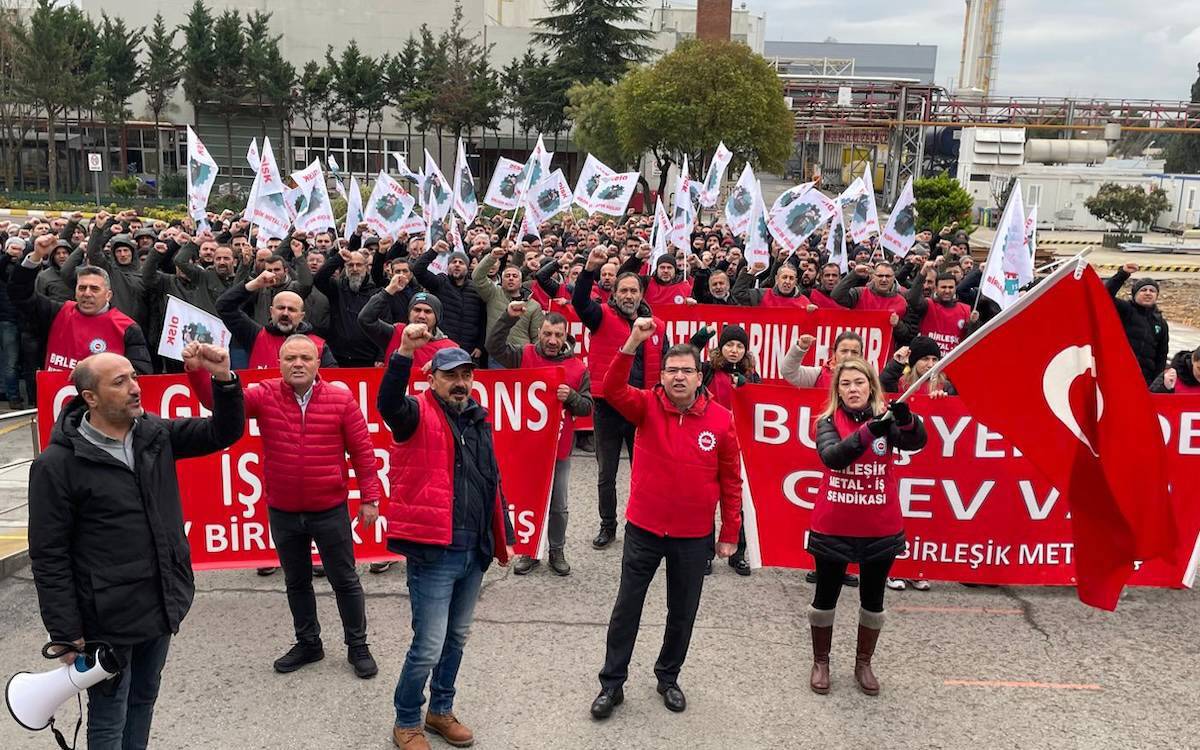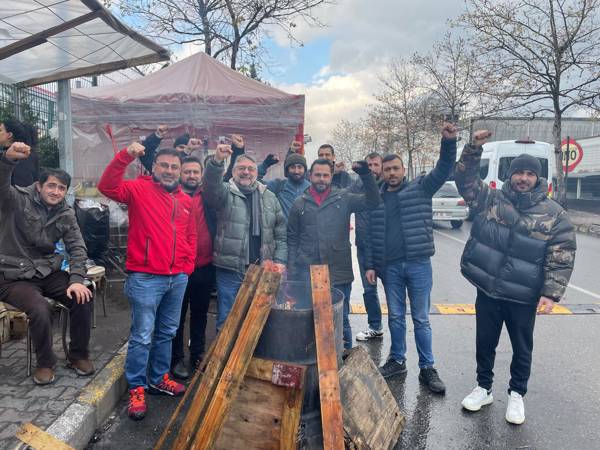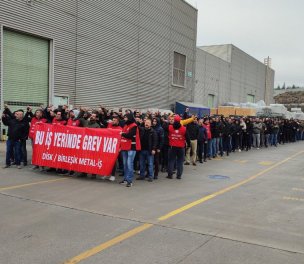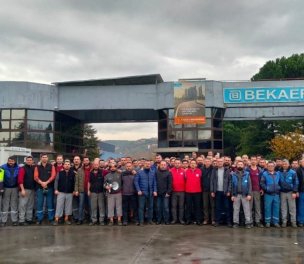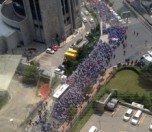Since the Justice and Development Party (AKP) led by Recep Tayyip Erdoğan came to power in 2002, the government has postponed more than 20 strikes, effectively banning them.
Between 2003 and 2023, strike bans prevented 200,000 workers from taking collective action while about 90,000 workers could go on strike, according to data compiled by economics professor Aziz Çelik.
Until Apr 2017, when Turkey was governed with a parliamentary system, strike postponements required a cabinet decision. After the transition to the presidential system following the Jun 2018 elections, this authority was transferred to the president. an authority granted under the state of emergency powers in effect from Jul 2016, following a failed coup attempt, to Jul 2018.
President Erdoğan openly boasted about his administration’s intervention in strikes during this period in several public statements. In July 2017, addressing foreign investors, Erdoğan said that the state of emergency was implemented to prevent strikes: “When we came to power, Türkiye was under a state of emergency, but all factories were under the threat of strikes. Remember those days. But now, wherever there is a strike threat, we immediately intervene, taking advantage of the state of emergency.”
In April 2018, speaking to industrialists during his party’s parliamentary group meeting, Erdoğan said, “Is there any talk of a strike at any factory? If so, we intervene immediately. The state of emergency becomes an instant solution. There’s an atmosphere of peace, and yet they’re advising us not to have the state of emergency in place.”
In December 2018, the president said, “With us, what they call strikes are no more. Now, there are no strikes. If there are no strikes, it means you’re giving workers their due and protecting their rights.”
Postponed strikes
Here are the banned strikes under the rule of the AKP:
- The first strike ban during the AKP era occurred on Jul 1, 2003, at Petlas Tire Industry and Trade Inc., where workers were represented by the Petrol-İş union.
- In Jul 2003, the government postponed a planned strike by Kristal-İş union members at Paşabahçe before it even began.
- After the ban was lifted, Paşabahçe workers resumed their strike in 2004, but it was once again postponed.
- On Mar 21, 2004, after collective bargaining negotiations failed, over 5,000 workers represented by Lastik-İş union declared a strike at 20 tire factories, including major producers like Pirelli, Goodyear, and Brisa. The strike was postponed by cabinet decision.
- On Sep 1, 2005, a strike involving 400 workers at Erdemir Mining, represented by Türkiye Maden-İş, was postponed.
- On Jun 27, 2014, a strike involving 5,800 workers at 10 glass factories under Şişecam, which had lasted eight days, was postponed on the grounds that it "posed a threat to public health and national security."
- On Jul 21, 2014, a strike decision by the Türkiye Maden-İş union at Çöllolar Coal Field and Çayırhan Coal Operation was postponed.
- On Jan 30, 2015, the cabinet postponed a strike led by Birleşik Metal-İş across 22 factories employing 15,000 workers, including companies like Anadolu Isuzu, Demisaş Döküm, Federal Mogul, Sarkuysan, and Türk Prysmian Kablo, under the MESS group collective bargaining agreement.
- The first strike ban during the state of emergency (OHAL) came in 2017 at Asil Çelik, where a strike set to begin on Jan 18 was postponed.
- On Jan 20, 2017, another strike organized by Birleşik Metal-İş at workplaces affiliated with EMİS was also postponed.
- On Mar 20, 2017, a decision published in the Official Gazette postponed a planned strike at Akbank, citing its potential to “disrupt economic and financial stability.”
- On May 22, 2017, another Official Gazette announcement postponed a planned strike by Şişecam workers scheduled for May 24, claiming it “posed a threat to national security.”
- On Jun 5, 2017, a strike decision at Mefar Pharmaceuticals, taken after collective bargaining negotiations failed, was blocked by the cabinet, which deemed it “a threat to public health.”
- On Feb 2, 2018, a strike covering 130,000 workers under the MESS group collective agreement was postponed by a cabinet decision with the approval of President Erdoğan.
- On May 23, 2018, a strike decision by Petrol-İş union members at Soda Kromsan in Adana and Mersin was postponed by cabinet decision on the very day it was set to begin.
- On Jan 8, 2019, a strike at workplaces affiliated with İZBAN (İzmir Suburban Transportation System Inc.) was postponed by presidential decree.
- On Oct 8, 2020, a planned strike at two Şişecam factories where Petrol-İş is organized was postponed before it could start.
- In 2022, strike decisions by Birleşik Metal-İş and Özçelik-İş at two factories owned by Bekaert Steel in Kocaeli were postponed.
- On Jan 24, 2023, a strike by Schneider Energy workers was postponed by Erdoğan’s decision, citing it as a “threat to national security.”
- On Dec 14, 2024, strikes at facilities owned by Hitachi Energy, Grid Solutions, Schneider Electric in four provinces, and Arıtaş Cryogenics were also postponed. (VK)





